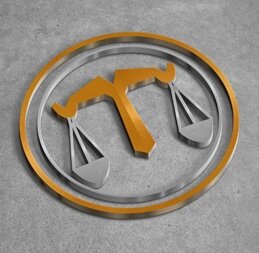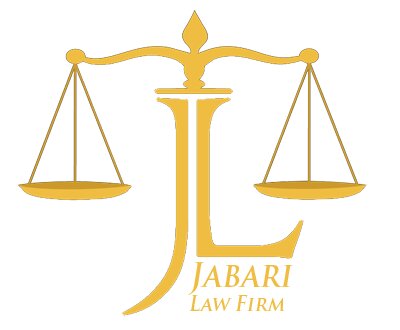Best Tax Lawyers in Hashemite Kingdom of Jordan
Share your needs with us, get contacted by law firms.
Free. Takes 2 min.
Or refine your search by selecting a city:
List of the best lawyers in Hashemite Kingdom of Jordan
About Tax Law in Hashemite Kingdom of Jordan
The tax system in the Hashemite Kingdom of Jordan is a combination of direct and indirect taxes meant to support the country's public finances and stimulate economic growth. The main types of taxes include income tax, sales tax, social security contributions, property tax, and customs duties. The Income Tax Law No. 34 of 2014 is a key piece of legislation governing income tax, and the General Sales Tax Law oversees the collection of sales taxes. The Jordanian tax system is designed to ensure fairness, transparency, and adhere to international standards.
Why You May Need a Lawyer
There are several scenarios where seeking legal assistance in matters of tax law in Jordan may be beneficial:
- Setting up a business: Understanding the tax obligations and benefits available for new businesses can help optimize tax liabilities.
- Personal income tax planning: To ensure compliance and optimize tax efficiency for both citizens and expatriates.
- Disputes with the tax authorities: Legal advice can assist if there are disagreements or misunderstandings regarding tax assessments.
- Inheritance and estate planning: A lawyer can help minimize tax liabilities related to estate transfers.
- Corporate tax management: For companies looking to expand or restructure, understanding tax implications is crucial.
Local Laws Overview
Key aspects of Jordan's tax laws include:
- Income Tax: Individuals and corporations are subject to varying rates based on the income bracket system. Residents are taxed on worldwide income, while non-residents are taxed only on income sourced from Jordan.
- VAT/Sales Tax: The standard rate is 16%, though some items are subject to lower rates or exemptions.
- Withholding Tax: Payments to non-residents for services rendered in Jordan may be subject to withholding taxes.
- Customs and Duties: Import duties vary depending on the type of goods, origin, and applicable trade agreements.
- Real Estate and Property Tax: These taxes apply to property ownership and transactions, with specifics varying based on property location and use.
Frequently Asked Questions
How is income tax computed for individuals in Jordan?
Individual income tax is determined based on progressive rates which vary depending on the income level and residency status. Taxable income includes salaries, professional fees, and other forms of income.
Are there any tax incentives for foreign investors in Jordan?
Yes, Jordan offers tax incentives for foreign investments particularly in development zones and qualified industries to promote investment and economic growth.
What is the procedure for filing a tax return in Jordan?
Tax returns must be filed annually by April 30th. Individuals and businesses must submit their tax declarations and settle any dues through the Income and Sales Tax Department (ISTD) using the online platform or in-person submissions.
What penalties apply for late tax payments?
Penalties for late payments typically include interest charges on the overdue amount, along with potential fines. The exact rates and calculations are specified under the tax laws.
Do expatriates have different tax obligations in Jordan?
Expatriates are taxed on income derived from Jordanian sources. Depending on bilateral agreements, there might be tax treaty arrangements that can affect their obligations.
Can I appeal a tax assessment in Jordan?
Yes, taxpayers can appeal assessments through a series of reviews starting with filing an objection with the ISTD and further proceedings as per the established dispute resolution process.
Are digital services subject to VAT in Jordan?
Yes, digital services provided in Jordan are subject to VAT, with service providers responsible for VAT collection and remittance.
What should I do if I have unpaid back taxes?
It is advised to contact the ISTD to discuss payment plans or settlements. Legal assistance may help negotiate and reduce penalties.
How are corporate taxes handled in Jordan?
Corporate taxes involve a structured rate system dependent on business sectors. Specific deductions and incentives are available to encourage business growth.
Is there a limit on deductions for charitable contributions?
Charitable contributions are deductible up to a certain percentage of taxable income, provided they meet eligibility criteria set by tax regulations.
Additional Resources
For those seeking more information or assistance, the following resources may be helpful:
- Income and Sales Tax Department (ISTD) - The official government body for tax matters.
- Jordan Investment Commission - Provides information on tax incentives for investors.
- Local legal firms specializing in tax law - Offer tailored legal advice and representation.
Next Steps
If you need legal assistance with tax matters in Jordan, consider the following steps:
- Identify the specific tax issue or question you have.
- Gather all relevant documentation such as tax returns, notices, and correspondence.
- Consult with a licensed tax attorney or tax consultant in Jordan who specializes in your area of concern.
- Explore government resources like the ISTD for guidance and tools.
- Consider joining workshops or seminars focused on tax laws to enhance your understanding.
Lawzana helps you find the best lawyers and law firms in Hashemite Kingdom of Jordan through a curated and pre-screened list of qualified legal professionals. Our platform offers rankings and detailed profiles of attorneys and law firms, allowing you to compare based on practice areas, including Tax, experience, and client feedback.
Each profile includes a description of the firm's areas of practice, client reviews, team members and partners, year of establishment, spoken languages, office locations, contact information, social media presence, and any published articles or resources. Most firms on our platform speak English and are experienced in both local and international legal matters.
Get a quote from top-rated law firms in Hashemite Kingdom of Jordan — quickly, securely, and without unnecessary hassle.
Disclaimer:
The information provided on this page is for general informational purposes only and does not constitute legal advice. While we strive to ensure the accuracy and relevance of the content, legal information may change over time, and interpretations of the law can vary. You should always consult with a qualified legal professional for advice specific to your situation.
We disclaim all liability for actions taken or not taken based on the content of this page. If you believe any information is incorrect or outdated, please contact us, and we will review and update it where appropriate.
Browse tax law firms by city in Hashemite Kingdom of Jordan
Refine your search by selecting a city.















